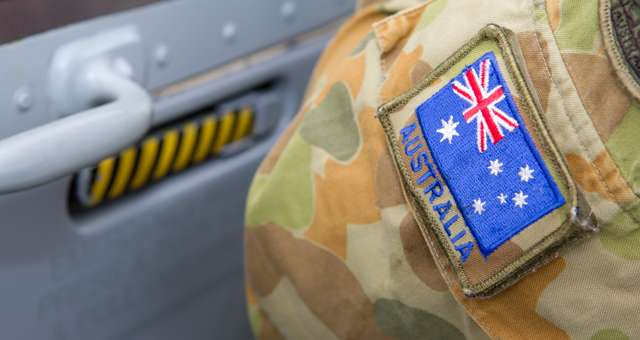Grand strategy is rarely mentioned in Australian defence debates. That’s unfortunate as it’s designed for use in solving complex problems when resources are limited. And that’s just where Australia is now, with some real worries over China but relatively meagre national means. Grand strategy has three major differences to plain-vanilla ‘strategy’, explains Dr Peter Layton.
To continue reading the rest of this article, please log in.
Create free account to get unlimited news articles and more!
Firstly, grand strategy tries to build a better future. If a military strategy tries to win a war, grand strategy seeks a better peace beyond the conflict.
Secondly, a grand strategy uses diverse national power ‘means’. This diversity is summed up in the oft-used DIME construct: diplomacy, information, military and economic. Such diversity is not just whole-of-government but rather whole-of-nation and, in a globalised world, an international dimension. A grand strategy uses all and every suitable means in a coherent, integrated manner.
Thirdly, a grand strategy includes building the means required. The instruments of national power the grand strategy uses are developed from the tangibles of personnel, money and materiel and the intangibles of legitimacy and soft power. Industry and society loom large in this oft-overlooked second half of grand strategy.
These characteristics have important implications. Devising a grand strategy requires clearly defining its objectives (the ‘ends’). This is more than vague declarations such as being in the national interest, making us secure or building prosperity. The national interest varies from person to person; in 2003 invading Iraq was declared as being in the national interest but even then some thought differently.
On the other hand, being secure or prosperous are fine aspirational statements without any way of measuring progress or even arrival at the chosen destination. Such rhetorical flourishes are used mainly because defining objectives is intellectually challenging.
In grand strategy, the key is that we are trying to actively change the existing relationship we have with another state into something better. Clausewitz would have understood: “the political object is the goal, war is the means of reaching it”.
Moreover, as a grand strategy is whole-of-nation it needs to be compelling so that all – or at least most – consider it worth supporting. Orders alone are not enough. Gaining such broad buy-in requires a persuasive argument and more than just advocating a sensible objective. Strategy is the ‘way’ the ‘means’ are used to achieve the ‘ends’. The ‘ways’ need publicly articulating, as they are what grand strategy is all about.
If that sounds hard, there are alternatives. Risk management involves limiting the damage an anticipated bad event may have. It’s the classic insurance policy approach; if the house burns down, having insurance means our financial losses stay within acceptable bounds.
The ADF is sometimes perceived in national insurance terms. Certainly, recent Defence White Papers have favoured risk management over strategy. Opportunism is the reverse: taking advantage of seemingly good events by jumping on-board another’s grand plans albeit your future is then in someone else’s hands. Australia leapt on board American plans to remake Iraq; it seemed like a good idea at the time.
Opportunism and risk management respond to events. Grand strategy tries to shape events. Which is best to use is a matter of judgement but only grand strategy tries to get us to where we wish to go.
What might an Australian grand strategy look like? There are three broad options.
Denial grand strategies usually stress military might: the threat or application of violence will deter or stop others undertaking unwanted actions. This lies at the core of Hugh White’s 200 F-35s and 24 submarines plan, and Peter Jennings' (ASPI) call to consider greater defence spending. While both seek to physically deny Chinese ambitions, they differ over fundamentals: White argues America’s leaving so we’ll fight alone, Jennings that America’s staying so we’ll fight alongside them.
Engagement grand strategies make use of groups in other states that have interests and desires that you share. The China Matters think tank wants to engage China to devise mutually-agreed rules. On the other hand, the federal government approach leans towards engaging our regional neighbours to work together to constrain Chinese ambitions to acceptable limits. This engagement is deeper than simple alliances as public statements about shared values highlight. It’s about building a security community of like-minded states.
The national shipbuilding enterprise fits by developing means useful more to engagement than warfighting. The ships can protect trade with our friends better than a large fighter force or submarine fleet can, while not directly threatening China and thus our prosperity.
Reform grand strategies try to change the ideas people hold. Persuading the Chinese public to embrace democracy seems improbable, even if China’s 2015 Military Strategy frets over such a possibility. An alternative is to promote democracy in China’s neighbours; Lavina Lee (US Studies Centre) recently outlined such a strategy.
There are already ideas in the public domain that with development could become grand strategies. In general, most don’t define the better future sought, stress a single means rather then using DIME in an integrated manner and neglect building national power.
The engagement approach seems the most developed but shortcomings are evident. For example, ignoring future naval ship manning issues and a relaxed schedule suggest local employment matters more than grand strategic outcomes.
A grand strategy could mean Australia creates the future that we want. Other approaches won’t. Even so, devising a successful grand strategy would not be simple, requiring time and some real intellectual effort. Is Australia’s future worth it?
Peter Layton is a visiting fellow at the Griffith Asia Institute, Griffith University. He has a doctorate from UNSW on grand strategy, taught it at the US National Defense University and is the author of Grand Strategy.

 Login
Login







